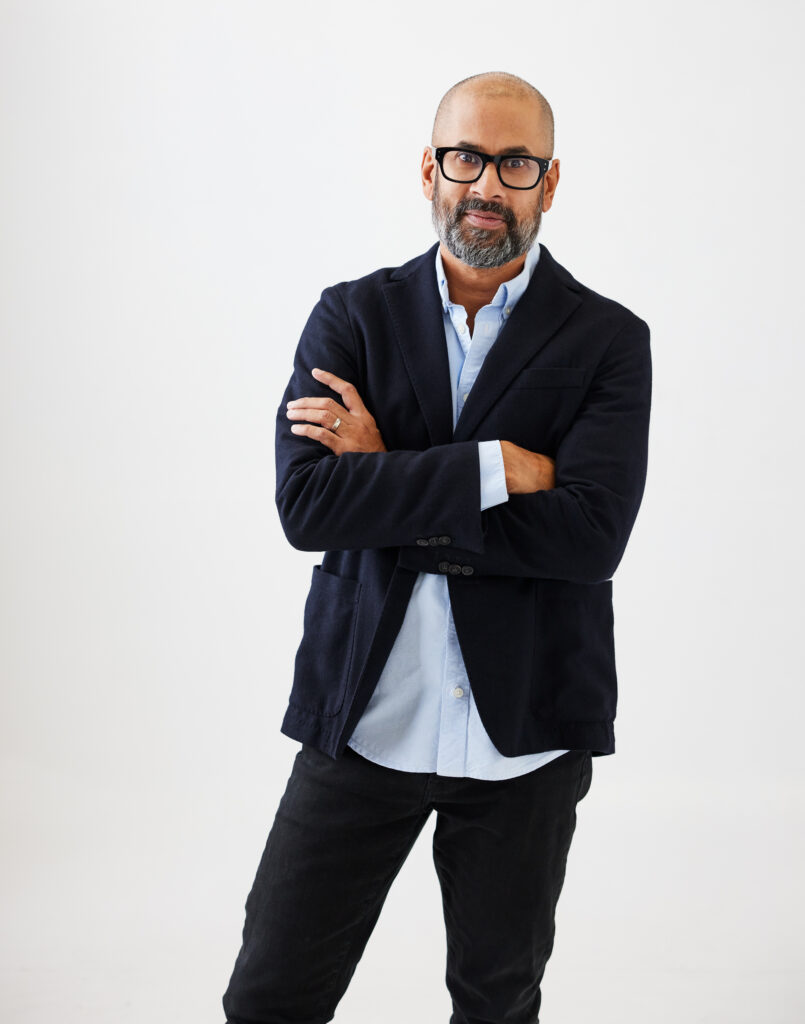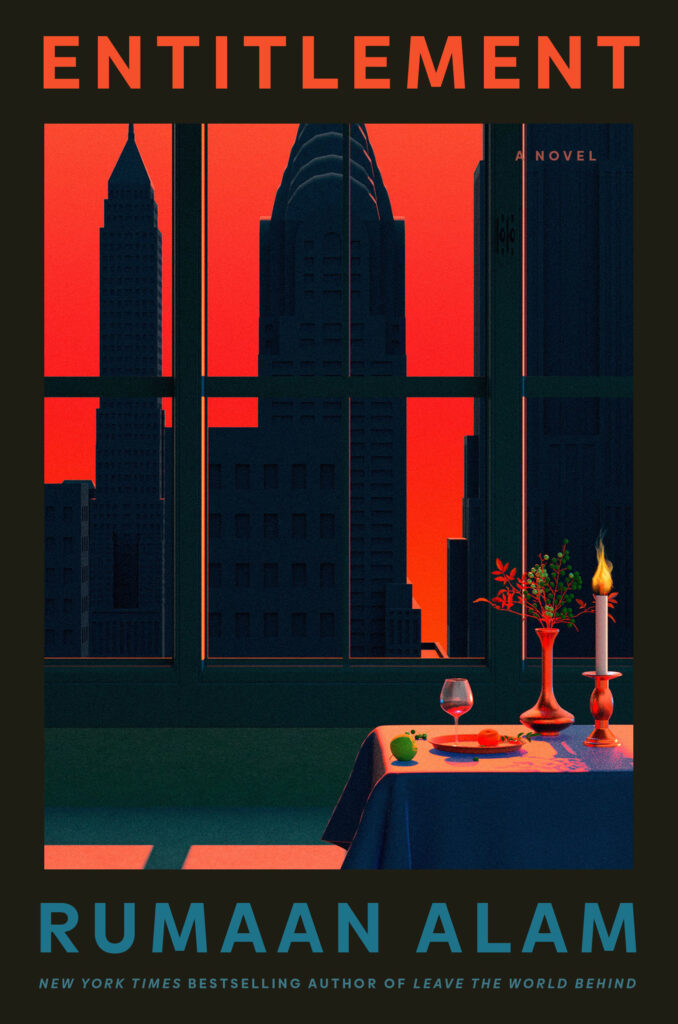TED HILDNER catches up with best-selling Author Rumaan Alam in Boston on the first day of a national book tour, celebrating the highly anticipated release of his latest novel, Entitlement.

After publishing Rich & Pretty and That Kind of Mother, in 2020 Rumaan Alam reached massive critical success with his third novel, Leave the World Behind. A doomsday tale that combines modern-day social issues and personal struggles with an Armageddon-esque storyline, Leave the World Behind poses that big scary question: what would you do if the world was actually ending? Leave the World Behind became a contender for the National Book Award before being adapted into a heavily streamed Netflix movie starring Julia Roberts, Ethan Hawke, Mahershala Ali, and Kevin Bacon in 2024. The New York Times opined that what makes Leave the World Behind such a page-turner “comes from its suspenseful elusiveness; you never quite know what the author is up to.”
Alam’s plots are complex, and his characters are fraught with cultural, class, and racial struggles. I imagined the author would be as tightly wound as the family facing the end-of-times in Leave the World Behind. So, I was surprised to find Alam totally down-to-earth and laid-back. At 47, a husband and father of two young sons, Alam is both enthusiastic and relaxed about Entitlement. “There is this point at which the private endeavor of an author becomes a public transaction,” he says of the writing and publishing process. Comparing it to watching a newborn foal standing on its legs for the first time, Alam exclaims: “I feel great, and this is just the beginning of the book becoming really independent of me.”
Alam’s work is very much tethered to his upbringing. His ideas and values regarding privilege, fate, and working hard are often autobiographical and reflected in his storylines. Alam studied literature at Oberlin College and was born and raised in the affluent suburbs of Washington, DC. One of four kids of first-generation immigrants from Bangladesh, he reminisces about an idyllic childhood shaped by loving parents who were proud to become US citizens and participate in the American dream. “I had no sense that my family was any different than any of my friends,” he recalls. With high-functioning role models – his mother is a doctor, and his father is an architect – education and creativity were very important in the family. Alam began to read voraciously as a young kid, and by the time he turned ten, he knew he wanted to be a writer.
After college, Alam moved to New York and experienced racial inequality firsthand. After years of climbing the literary ladder at magazines and ad agencies, he grew tired of being perceived as the immigrant with brown skin, who’s editors and colleagues he believed expected a specific type of voice and attitude from his writing. Instead of playing along, he quit his job and dove headfirst into writing. Alam’s books are not written from the black or brown point of view and don’t take the shape of fiction based on race or gender. Instead, his stories are more complicated and nuanced than that. His characters are often strong-willed and well-intentioned, and although they may be black or white, male or female, they each seem to share the same struggles in trying to find success in a flawed world that constantly tests their will and knowledge of themselves. Keeping true to himself, Alam has succeeded in not writing from the perceived racial perspectives he was initially scared of. Instead, he has found a unique and intelligent voice that critics have applauded.
Entitlement is the story of Brooke Orr, a young Black woman raised by an affluent, loving, adopted white mother. As an entry-level employee at a large philanthropic initiative, Brooke is at a moral crossroads. Working for a billionaire who’s determined to make the world a better place by giving away all his money in the spirit of his dead daughter, Brooke embarks on a personal journey that, even with her Vassar education and the support of her racially diverse, if not woke, group of friends, gets her drawn deeper and deeper into a world of money, greed, power, and, yes, entitlement. As with his previous novels, Alam shows us just how complicated the themes of race, culture, and privilege are for everyone, no matter their ideological viewpoints, cultural standing, or personal backgrounds.

Although Alam says his work is somewhat autobiographical, I found the author to be much less complicated than any of his characters. Alam met his husband, an accomplished photographer, David Land, on a blind date in 2003. “That’s right, a blind date – back when people used to say things like, ‘I know this gay guy, and you should meet him’” he quips. Fast forward 23 years, four novels, and two adopted kids later, Alam and Land are living their version of the American dream.
In real life, Alam’s version of a world on the brink of calamity involves raising two sons, Xavier and Simon, in Brooklyn. After 14 years in their old house, and with school about to start, the couple moved their family into a fancy new 3-bedroom apartment in Fort Green this past September. With the kids back in school, they are slowly, as a family, “feathering the nest and figuring a new daily rhythm.” After the daily chaos of getting the kids off to school, Alam is enjoying this time in his life and settling into his new surroundings. “I had lived in the old place since my children were little. I could walk through that house in the dark. I could go up and down the stairs holding a baby and a bottle and not miss a step. Now, in this new place, I keep walking into walls and my own bedroom door when I’m in the hall”.
When asked about his next project, Alam said that although he is working on a new book, he’s currently just excited to be back in Boston, kicking off the book tour for Entitlement. “Tap dancing for whoever wants to watch,” he says. After that, he is going with Land to LA to see Joni Mitchell at the Hollywood Bowl, and then they are planning a family trip instead of a Christmas present. “Our kids love the adventure of travel, and we learn so much from them,” he says. “There is no better gift.”
Order a copy of Entitlement here

